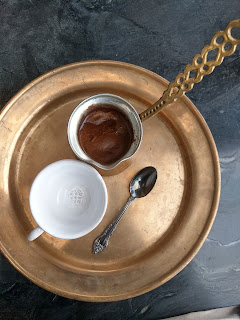COFFEE, DO NOT – ABUSE IT !
Are you a Coffee addict, I am guilty with millions globally. Have you ever wondered the below :
- What exactly is Coffee
- Instant verses organic Coffee
- Caffeine vs Decaf
- Can it improve your health, fitness & sports performance
- Am I drinking too much or overdosing
- Best way to drink your cup of coffee
WHAT IS COFFEE :
Berries derived from Coffee plant, which are roasted or grounded to specification. The most popular varieties are
a) Arabica – From the family of Ethiopia plant , derives many varieties, grown in high grounds with mild temperature. Plantation requires a lot of care & attention , has a distinct flavor hence the $$ price per cup increases
b) Robust – Grown in West , Central Africa & South East Asia. It can be grown in low altitude with harsh temperature and easy to grow, cultivate and harvest, hence cost of $$ price per cup is within the reasonable range. Its used for instant and special blends.
Its has more than fifty percent caffeine than Arabica, Personally I can vouch during my travels to Thailand, Vietnam & Indonesia tried the native Coffee which kept me all night long by with my daily cup
INSTANT vs. ORGANIC
Instant Coffee:
Made from ground coffee extract by air or freeze drying into powder format.
However there is not much of difference between ground and instant when compared to ground Coffee- even though it has less caffeine.
Only red flag is the chemical Acrylamide, compared to ground Coffee it has higher level as this chemical if formed in the process of roasting.
Organic Coffee:
Best choiceif the health & quality is priority on your list . Always check for organic certification which are produce without harmful synthetic /artificial fertilizer or chemicals etc.
USDA (ORGANIC) & NO GMO. (Certification)
CAFFEINE & DECAF VERISON
CAFFEINE:
One of the most powerful stimulant in the world. It is used for mind & body alertness ,attention and it has shown to improve physical & mental performance.
When caffeine from Coffee is absorbed to the blood stream it directly link by blocking adenosine. lets see what is adenosine as many would wonder? my analogy – think of it as mental, physical and digestion by product when it gets accumulated you will feel tired & sleepy ( check our blog on SLEEP)
Caffeine block the effect of adenosine and by increasing adrenal hormone ( increasing heart rate, breath rate by increasing circulation makes you more alert and raise sugar in blood ) for energy& focus booster, in addition Dopamine (pleasure hormone which makes you happy, motivated, feel good) and finally Norepinephrine ( chemical messenger which transmit nerve signals also it is the flight -fight hormone).
Do subscribe we will add blog on All about Hormones in the near future .
DE-CAFFEINATED :
As the name suggest 97% percent without caffeine and you are left with 2-3% percent of caffeine, this is done by soaking the beans in water & solvent or mixing these methods or as a stand alone. Next step is once the caffeine is removed, it is washed ,steamed and roasted.
This is is ideal for persons with :
- Caffeine intolerance
- Taking medications which could interact with caffeine
- Who doesn’t like the bitter taste
HEALTH, FITNESS & SPORT BENEFITS :
Main reason is Coffee is one of the best Antioxidant in the world.
Present society in year 2022 living with pollution, high stress work and personal environments, chemicals ,additives in food, fast paced life etc.. contributes to oxidative stress caused by Free Radicals (chemical reaction during metabolism, it could damage DNA, Protein & Fat of cells) etc. Which could lead to numerous diseases physically and emotionally. Antioxidants = Scavenger Of Free Radical
Powerful antioxidants found in Coffee are : Hydrocinnamic & Polyphenols.
6 POSITIVES OF COFFEE:
- Enhance sports performance ( for some athletes it is counterproductive)
- Improves focus, alertness, mental clarity & cognition
- Reduction of cardio vascular disease, certain types of cancers
- Improves liver function
- Reduction in type 2 diabetes
- Increase in energy & happiness
At this very moment leading experts in medical & science communities are conducting research on Coffee, in a future blog will shall discus the latest’s findings with research links
9 NEGATIVES OF COFFEE & OD :
As per research, upper limit of tolerance for general healthy population is 400mg of caffeince ( approx. 4 Cups) per day. Tolerance level may vary based on many individual factors.
- Anxiety & Irritability
- Addiction (dependency leads to physical & psychological withdrawal)
- Rapid heart beat (varies when conducting physical activity or sports)
- Muscle tremors & nervousness
- Urge to urinate do due to its diuretic effect ( cut down on your number of cups )
- Never take with certain medication, pre-workouts, fat loss supplements & certain herbs
- Insomnia ( my suggestion do not consume coffee after 11am ) give it good 10 hours gap prior to bed time
- Fatigue ( if you become depended its will be a energy dump, when the effect diminish )
- High blood pressure ( watch out- danger zone )
Coffee is like a two sides of a coin + & – . As with any exercise ,food modification & supplements always consult your Physician/Medical Doctor & do your own research to find what works for you the best with your personal tolerance levels .
NOTE : Above details are valid only if you consume Coffee WITHOUT sugar, milk, or any other fancy mixes :), to keep it real 6 days a week I keep it straight up Americano/Espresso & 1 week treat myself self with AFFAGATO – NOM NOM.
As with anything in life do not get in to habitual addiction , have it for one month then replace with Tea for 1 week, then get back to it.
Hope this post helped, I would greatly appreciate your feed back as I am a rookie in blogging !
Check my favorite Coffee subscription :
References :
Caffeine, coffee, and appetite control: a review.
Schubert MM, Irwin C, Seay RF, Clarke HE, Allegro D, Desbrow B.Int J Food Sci Nutr. 2017 Dec;68(8):901-912. doi: 10.1080/09637486.2017.1320537. Epub 2017 Apr 27.PMID: 28446037
Effects of coffee/caffeine on brain health and disease: What should I tell my patients?
Nehlig A.Pract Neurol. 2016 Apr;16(2):89-95. doi: 10.1136/practneurol-2015-001162. Epub 2015 Dec 16.PMID: 26677204
The Impact of Coffee on Health.
Nieber K.Planta Med. 2017 Nov;83(16):1256-1263. doi: 10.1055/s-0043-115007. Epub 2017 Jul 4.PMID: 28675917
Effect of Coffee and Caffeine Ingestion on Resistance Exercise Performance.
Richardson DL, Clarke ND.J Strength Cond Res. 2016 Oct;30(10):2892-900. doi: 10.1519/JSC.0000000000001382.PMID: 26890974
Effects of Caffeine and Coffee on Human Functioning.
Del Coso J, Salinero JJ, Lara B.Nutrients. 2020 Jan 2;12(1):125. doi: 10.3390/nu12010125.PMID: 31906419
Mesas AE, Leon-Muñoz LM, Rodriguez-Artalejo F, Lopez-Garcia E.Am J Clin Nutr. 2011 Oct;94(4):1113-26. doi: 10.3945/ajcn.111.016667. Epub 2011 Aug 31.PMID: 21880846
Caffeine content and antioxidant activity of various brews of specialty grade coffee.
Miłek M, Młodecki Ł, Dżugan M.Acta Sci Pol Technol Aliment. 2021 Apr-Jun;20(2):179-188. doi: 10.17306/J.AFS.0890.PMID: 33884855
Caffeine and exercise: metabolism, endurance and performance.
Graham TE.Sports Med. 2001;31(11):785-807. doi: 10.2165/00007256-200131110-00002.PMID: 11583104
Caffeine effects on systemic metabolism, oxidative-inflammatory pathways, and exercise performance.
Barcelos RP, Lima FD, Carvalho NR, Bresciani G, Royes LF.Nutr Res. 2020 Aug;80:1-17. doi: 10.1016/j.nutres.2020.05.005. Epub 2020 May 16.PMID: 32589582
Coffee and its consumption: benefits and risks.
Butt MS, Sultan MT.Crit Rev Food Sci Nutr. 2011 Apr;51(4):363-73. doi: 10.1080/10408390903586412.PMID: 21432699
The Impact of Caffeine and Coffee on Human Health.
Cornelis MC.Nutrients. 2019 Feb 16;11(2):416. doi: 10.3390/nu11020416.PMID: 30781466

